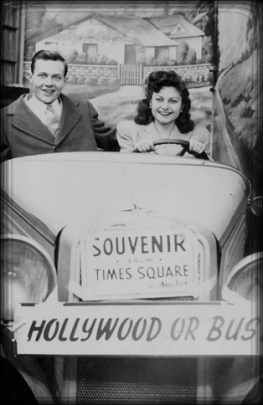Cashier #43 was not smiling enough. I called her into my office.
But, Mr. Pruffer, I was smiling, she said. I really was. Whenever a customer came up to my register, I smiled just like the manual says to do. I showed my teeth and everything. I lifted the corners of my mouth.
Thats not what the facial expression cognition software is telling us, I said. The reports have been very clear for several days. Over the course of the twenty-seven documented Customer Interface Junctures it rates your facial expression at a median of five out of ten, which is really somewhere between a wan look of apology and a grimace, rather than a smile. That is extremely sub par.
Her name was Gladys Kemp. She stood in the middle of the floor in front of my desk, silent, her eyes cast down, her lips pursed as though she were holding something inside her mouth that kept trying to escape. She looked like she was in her mid-thirties. She had the first faint tracings of lines around her eyes, the blue shadows of tiredness beneath, but these things somehow only called attention to the melancholy prettiness of her face. She still wasnt saying anything.
Look, I said, trying to project a gentler, more sympathetic attitude. Let me show you how it works. I gestured toward the chair across from mine, and when shed seated herself in it I turned the screen on my desk toward her so that it was at a ninety-degree angle from both of us. I leaned forward a little so that I could look more closely at what it showed. She leaned forward, too. Our faces were quite close together and I could smell something faint and lovely, lavender or green tea.
I pointed to the screen with my pen.
The software graphs your smile over the course of the day according to a series of standardized characteristics. Broadness is only one of them. As you learned in your employee orientation, when a customer approaches it is important to raise the corners of your mouth like soI demonstrated for herso that your teeth become visible, but not your tongue. It is important to narrow your eyes and lower your lidsagain, I showed her how it was done correctlybecause the relaxation of the eye is another demonstration of a genuine pleasure experience and the customer will be able to discern immediately, if your eyes are too wide, say, or too rigid, that the smile is only a facade and not an expression of authentic good feeling. It is also important that you allow the smile to grow and fade on your face smoothly. A real smile isnt slapped on like a sticker; it blooms like a flower; it opens and closes gracefully. Like this. I showed her. Open. Close.
I see, she said. She looked down and I saw her lips crumple laterally and she put her hand up to cover her mouth. She was still leaning forward, and now she crossed her legs, one over the other. Her straight, dark hair fell forward and she brushed it back with her hand.
As you also should have learned when you were hired, I said, the best way to create this expression convincingly is to cultivate the emotion that traditionally underlies it. That is, think a happy thought that might bring on a smile of its own accord when a customer approaches. Now, you have a college degree, I remember from your file.
I have a masters degree, she said, in biochemistry. I was going for my PhD but when the government stopped giving student loans, I couldnt manage the expense.
Well, someone as clever as you should be able to think up something that can help you to smile at customers. I mean, really. I put my head on one side and pursed my lips and raised my eyebrows quizzically so that she could see that I was addressing her as an equal, a Partner-in-Success, in whom I was disappointed and from whom I expected better work, more commitment, less slacking in the future. Am I right? I asked.
She was silent for a moment.
Yes, she said, quietly.
Of course I am. Now, what can you think of to be happy about? Lets brainstorm together about this.
She was staring downward again, and I saw that her jaw was clenched and her eyes were wide and then, suddenly, bright. She blinked a couple of times.
Come on, I said. Help me out here. Things in your life to be happy about.
She looked at me and blinked several more times, and I noticed that her eyes were a lovely and unusual shade of hazel brown; they seemed almost translucent, suffused all through with light. I stared into them, I admit, a little captivated, and abruptly, right there, in the chair in my office, Gladys Kemp began to cry. Tears rose and dropped from her eyes. She made a noise like something feathered being strangled and covered her face with her hands.
I let her cry for a minute before I stopped her. Its good to get the emotions out, experts say, so I handed her the box of Kleenex on my desk. Then I sat with my arms folded and watched her. She took a Kleenex and wiped her eyes with it and blew her nose.
Im sorry, she said, between sobs. Its been such an awful week. My landlord is going to evict me and my daughter from our apartment for nonpayment of rent and my daughter is sick but the doctor doesnt know whats wrong and they are going to do more tests but the tests are so expensive and then our cat got run over by a bus. Ive been trying to smile, really I have, but its just been kind of difficult this month.
I promise that Ill do better next week. Please. I cant afford to lose this job.
And she looked at me again with those enormous eyes and I thought for an instant that I might disappear inside them and become trapped the way some insects become trapped in amber and you see them stuck there millions of years later and all at once I understood that those insects werent struggling and fighting to get out. They were luxuriating; they were deliriously happy. They were drowning in honey.
I was summoned back from these thoughts by the tune my computer plays when a new message arrives in my inbox. I was still at my desk and Gladys Kemp was watching me, waiting for me to speak. I hoped that I hadnt given any external indication of my thoughts, any sign of what I had just been feeling when I gazed into her eyes a few moments before. But her expression was unreadable: she just watched me, neutral and expectant. What would I say?
Well, I said. There were extenuating circumstances, I guess. As long as your rating improves next week, we dont have to make a big deal out of this.
Oh, thank you, she said. Thank you so much.
I nodded calmly but I didnt reply. Its best to maintain a benevolent detachment from the staff and I didnt want her to think that shed gotten away with anything. I stood up to show our interview was over, and she stood up and she seemed relieved and excited and, before she left, she leaned across the desk and offered her hand for me to shake and I took it and she squeezed my fingers and she smiled.
It wasnt the smile we were looking for, not the with-teeth smile of magnanimous welcome, not the one for customers. It was different from that. It unfolded diagonally across her face, her lips pushed together on one side so that the whole expression was lopsided. But it was at least a smile. A real one.
I could tell it was real because I found that I was smiling back. I was smiling as she turned away from me and walked toward the door. I was still smiling as she opened the door and stepped through it without looking back. I was even smiling as the door closed and I sat down at my computer to look at the new message that had arrived, and as I slid the cursor across the screen to open up the window for my email, and as I looked and saw that the new message was from my supervisor, Dr. Kyler, whose office is several floors above mine.
When I read the message, however, I stopped smiling.










